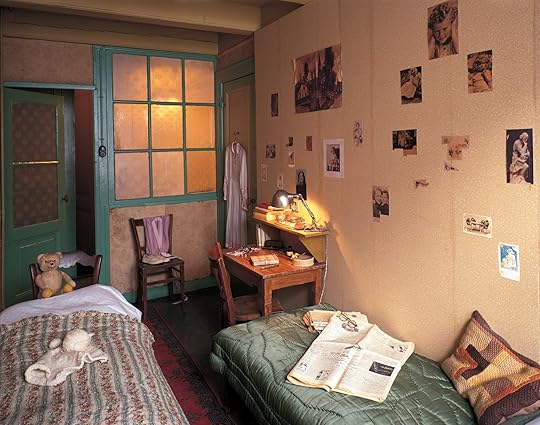What do you think?
Rate this book


256 pages, Paperback
First published January 1, 1987


The story of Anne Frank has been told for many decades and is one that resonates with a lot of young people. Anne’s story of survival in the Annex of her father’s business along with her family, another family, and a doctor is famous for being a story of growth and hope. The world outside of the small prison keeping the Franks safe was horrifying and wrought with murder, starvation, and abuse. Miep Gies was one of the people who helped hide the Franks in the Annex and this is her story. We follow Miep as a young girl in Vienna, her love for the Dutch, her journey to become an official Dutch citizen during the Natzi regime, her relationship with the Franks (before, during, and after the war), her plight to feed the Franks and retain enough food for them as well as her and her husband, and the fear that lurked in her heart for the Franks and countless others she helped hide or knew were in hiding. I'm going to keep this review short because it's a nonfiction narrative I fidn those incredibly hard to review. This audiobook is fantastic. Rosenblat does a stellar job of capturing the emotions of Miep and those around her. It is important to note that this story will probably break your heart. Towards the end, I found myself crying a lot. My heart completely breaks for these people and the plights that were dealing with in the Annex and after in the camps. This story is just as important as Anne’s because we are seeing the work that went into hiding these people from the Nazi Regime and the horrors of concentration and death camps. This novel is filled with sorrow and I will admit it made me quite depressed, but it also filled me with hope for humanity. Miep Gies never once saw herself as a hero, she saw herself as someone trying to save her dear friends’ lives and that to me makes her one of the most heroic people in history. Her deep love for the Franks shined through this story and I was moved to laughter and to tears. This is a novel that I think everyone should read alongside The Diary of a Young Girl. It is important not only to history, but in inspiring people to put others before themselves.
I am not a hero. I stand at the end of the long, long line of good Dutch people who did what I did or more—much more—during those dark and terrible times years ago, but always like yesterday in the hearts of those of us who bear witness. Never a day goes by that I do not think of what happened then. . . . I willingly did what I could to help. My husband did as well. It was not enough.There is nothing special about me. . . . I was only willing to do what was asked of me and what seemed necessary at the time. . . . My story is a story of very ordinary people during extraordinarily terrible times. Times the like of which I hope with all my heart will never, never come again. It is for all of us ordinary people all over the world to see to it that they do not. (11-12)This autobiography by Miep Gies is quietly amazing. It is an excellent companion to Anne Frank's diary. The narrative in Gies's memoir is not directly linked to particular days Anne wrote about, but readers familiar with the diary will see some clear connections.